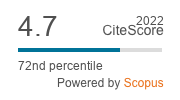In many developing countries, maize is both a staple food crop and a widely-used animal feed. However, adventitious colonisation or damage caused by insect pests allows fungi to penetrate the vegetative parts of the plant and the kernels, the latter resulting in mycotoxin contamination. Maize seeds contaminated with fumonisins and other mycotoxins pose a serious threat to both humans and livestock. However, numerous studies have reported a significant reduction in pest damage, disease symptoms and fumonisin levels in maize hybrids expressing the Bacillus thuringiensis (Bt) gene cry1Ab, particularly in areas where the European corn borer is prevalent. When other pests are also present, the cry1Ab gene alone offers insufficient protection, and combinations of insecticidal genes are required to reduce damage to plants caused by insects. The combination of Cry1Ab protein with other Cry proteins (such as Cry1F) or Vip proteins has reduced the incidence of pests and, indirectly, mycotoxin levels. Maize hybrids expressing multiple Bt genes, such as SmartStax®, are less susceptible to damage by insects, but mycotoxin levels are not routinely and consistently compared in these crops. Bt maize has a greater economic impact on Fusarium toxins than aflatoxins. The main factors that determine the effectiveness of Bt hybrids are the type of pest and the environmental conditions, but the different fungal infection pathways must also be considered. An alternative strategy to reduce mycotoxin levels in crops is the development of transgenic plants expressing genes that protect against fungal infection or reduce mycotoxin levels by in situ detoxification. In this review article, we summarise what is known about the relationship between the cultivation of Bt maize hybrids and contamination levels with different types of mycotoxins.
REVIEW ARTICLE
The impact of Bacillus thuringiensis technology on the occurrence of fumonisins and other mycotoxins in maize
J. Díaz-Gómez Related information
1Food Technology Department, University of Lleida, UTPV-XaRTA, Agrotecnio Center, Av. Rovira Roure 191, 25198 Lleida, Spain
, S. Marín Related information1Food Technology Department, University of Lleida, UTPV-XaRTA, Agrotecnio Center, Av. Rovira Roure 191, 25198 Lleida, Spain
, T. Capell Related information2Plant Production and Forestry Science Department, University of Lleida, Agrotecnio Center, Av. Rovira Roure 191, 25198 Lleida, Spain
, V. Sanchis Related information1Food Technology Department, University of Lleida, UTPV-XaRTA, Agrotecnio Center, Av. Rovira Roure 191, 25198 Lleida, Spain
, A.J. Ramos Related information1Food Technology Department, University of Lleida, UTPV-XaRTA, Agrotecnio Center, Av. Rovira Roure 191, 25198 Lleida, Spain
*ajramos@tecal.
*ajramos@tecal.
World Mycotoxin Journal: 9
(3)- Pages: 475 - 486
Published Online: December 21, 2015
2023 Journal Impact Factor
2.0
source: Journal Impact Factor 2023™ from Clarivate™

Institutional Offers
For institutional orders, please contact [email protected].
Purchase Options
-
P. Battilani and M. Camardo Leggieri
-
F. Xu, R.C. Baker, T.B. Whitaker, H. Luo, Y. Zhao, A. Stevenson, C.J. Boesch and G. Zhang
-
A.O. Aasa, F.F. Fru, O.A. Adelusi, S.A. Oyeyinka and P.B. Njobeh
-
F. Wu
-
V. Ostry
-
V. Ostry
-
R. Bandyopadhyay, A. Ortega-Beltran, A. Akande, C. Mutegi, J. Atehnkeng, L. Kaptoge, A.L. Senghor, B.N. Adhikari and P.J. Cotty
-
A. Logrieco, A. Moretti and M. Solfrizzo
-
G. Schatzmayr and E. Streit
-
B. Grenier and I. Oswald



